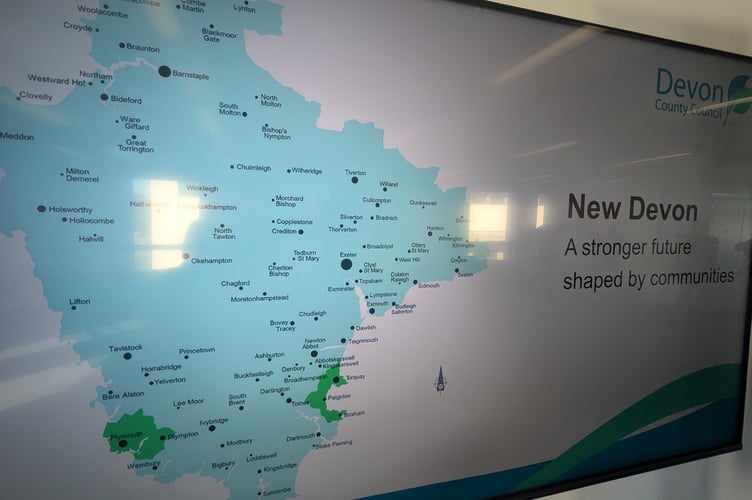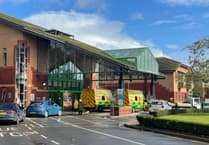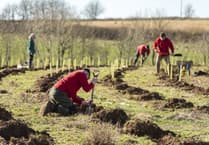A FRESH bid to redraw Devon is “not the status quo” and could lead to improved services, according to county leaders.
Under a new proposal, Devon’s 11 existing councils would become just three, with a so-called ‘New Devon’ unitary council being created by a merger of nine of those, while Plymouth and Torbay would retain their existing boundaries.
Deputy leader Councillor Paul Arnott (Liberal Democrat, Coly Valley) stressed a core pillar of the plan was linked to vulnerable children and adults.

At present, the county council is responsible for adults and children’s social care, but both services are facing pressures, with strained finances and Ofsted rating the county council’s children’s services as ‘inadequate’
Cllr Arnott said maintaining scale would be important for the viability of these two services.
‘If you break up the existing scale of those services, there is a real risk, and they are already challenged,’ he said.
‘This is about your relatives and your children’s lives, and this proposal represents the best practical long-term solution to protect vulnerable communities.’
Cllr Arnott said even if some of Devon’s district councils were merged together to create a unitary authority, their scale would still be much smaller than the existing county council, which could create problems around providing services to vulnerable adults and children.
The county council’s annual budget is around £2 billion, vastly above even the combined figure for Devon’s eight district councils.
Donna Manson, Devon County Council’s chief executive, said the ‘New Devon’ proposal was “not the status quo”, because even though its boundary mimics that of the existing county council, the way the likes of children’s and adult services would be accessed would improve.
“You need scale to provide services for families, and with public health, the key issue is scale,” she said.
“This plan is not the status quo, because at present there are different routes that people have to take to access services [depending on which district they live in], but this would be a completely different way of working.”
Ms Manson added that she believed the New Devon proposal would help continue the improvements being made in its children’s services department and “get us out of [Ofsted’s] special measures”.
The New Devon proposals are a response to the process of local government reorganisation, which relates to Westminster’s bid to eradicate the two-tier system of local government in favour of unitary councils.
At present, Devon, like other existing two-tier areas, has a county council and district councils that each provide distinct services within the same area, but unitary councils – like Plymouth and Torbay – look after all services within their boundaries.
With vulnerable adults in two-tier areas, for instance, this means the care element is overseen by the county council, but housing is a district council responsibility.
The New Devon plan, unveiled at Exeter Science Park echoes the existing Devon County Council footprint, but, crucially, the area would be governed by a single unitary council.
That entity would be created by the merger of the county council and Devon’s eight district councils.
Both Cllr Arnott and Ms Manson reiterated that having all services under one roof would make it easier for residents, and claimed it could lead to so-called efficiency savings.
Councillor Julian Brazil (Liberal Democrat, Kingsbridge), called it the “least worst option”.
“The government is intent on forcing through changes which will cost many millions of pounds to implement and provides a great deal of uncertainty for residents and staff who provide critical services,” he said.
“This option has emerged as the least worst, and if we do not put it forward then we may inadvertently pave the way towards a disastrous disruption to existing key services, such as adult social care and children’s services.”
Cllr Arnott also emphasised Neighbourhood Area Committees as part of the New Devon proposal. It’s envisaged that around six or seven of these would exist underneath the new unitary council, and would bring together elected representatives as well as those from parishes, the health service, police, voluntary sector and more.
It isn’t yet clear what if any funding or powers these committees would have.
The New Devon proposal will be debated by councillors before a final decision in November, the month, which the council must submit its local government reorganisation proposals. Other Devon councils – such as Exeter City Council – are also likely to submit rival ideas.
If it is accepted by government, the new unitary council would likely formally come into existence in 2028. Fresh elections would have to be held in advance of its creation.



.jpg?width=209&height=140&crop=209:145,smart&quality=75)

Comments
This article has no comments yet. Be the first to leave a comment.